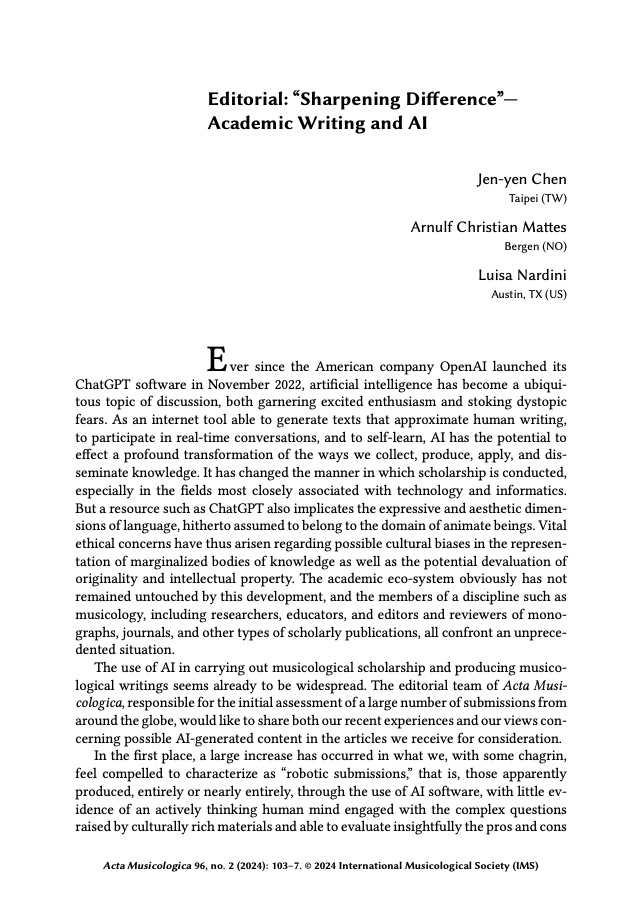Abstract
Ever since the American company OpenAI launched its ChatGPT software in November 2022, artificial intelligence has become a ubiquitous topic of discussion, both garnering excited enthusiasm and stoking dystopic fears. As an internet tool able to generate texts that approximate human writing, to participate in real-time conversations, and to self-learn, AI has the potential to effect a profound transformation of the ways we collect, produce, apply, and disseminate knowledge. It has changed the manner in which scholarship is conducted, especially in the fields most closely associated with technology and informatics. But a resource such as ChatGPT also implicates the expressive and aesthetic dimensions of language, hitherto assumed to belong to the domain of animate beings.

